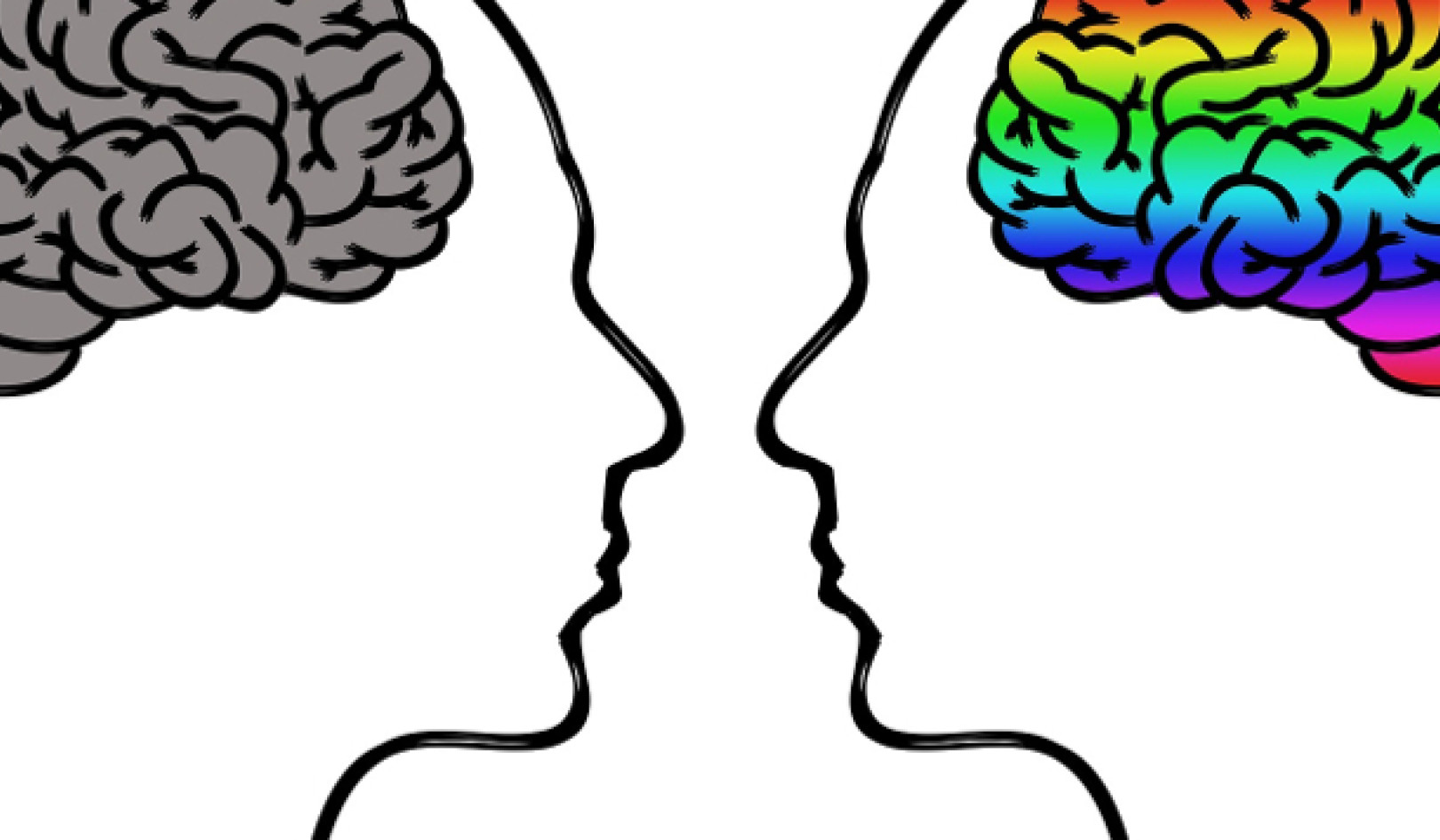
Perhaps travel cannot prevent bigotry, but by demonstrating that all peoples cry, laugh, eat, worry, and die, it can introduce the idea that if we try and understand each other, we may even become friends. --MAYA ANGELOU, Wouldn’t Take Nothing for My Journey Now
I have always been deeply affected by prejudice. I have been called guinea and wop, asked if my family was in the Mafia, told that people like me should not go to college, and asked to not associate with certain friends because I was not of their religious background. However, the prejudice I have endured has been mild compared to the pain of those who suffer daily from distorted views about themselves.
As a result of years spent trying to teach people to rewrite their prejudicial stories about themselves and others, I am keenly aware of how prejudice can spread. It can develop into embedded beliefs and cause inordinate amounts of stress. These inaccurate beliefs hamper a person’s potential by creating self-hatred and destroying their spirit.
Distorted Perceptions Lead to Prejudice and Stress
Prejudice reduces trust, creates insecurity, and causes stress between individuals, communities, and nations. Whenever our perceptions are distorted, stress is a likely by-product.
I see patients on the hour five days a week. As we develop a trusting, caring relationship, people often feel free to speak spontaneously, with less inhibition than they express socially. I am continually fascinated and dismayed by the amount of stress that prejudicial thinking and behaving creates.
Along with my own personal experiences, here are a few comments I’ve heard recently in my practice from people from all walks of life.
“Dogs don’t like black people; must be something about their smell.”
“We should bomb all the Arabs, starting with Iran.”
“I’m not prejudiced, but I feel uncomfortable when my kids get close to Christians.”
“I’m not biased, but you know how Jews are. You’re not Jewish, are you?”
“My sister is in love with a German she met while traveling. My father won’t permit him to enter our house — he can’t forget the war.”
“Hispanics are taking over this country. All the liberals are telling our kids they need to learn Spanish.”
“You can’t trust a Palestinian; they are all killers.”
“Men lack the empathy gene.”
“I love my wife, but if women were leading the world, you know the economy would tank.”
“I know intellectually that I am wrong, but I just can’t believe a fat person can be that smart.”
Each of these statements expresses an untrue bias. When they were made, I could see visible signs of stress on each person’s face.
Most people are unaware of the level of stress that such untruths create. If you’re prejudiced, you are likely afraid. The tension that prejudice causes is often seen as necessary for safety and security.
Whether you have biases toward yourself or toward others, you will live with unnecessary stress. Empathy is the tool that enables us to subject these views to rational examination before they are embedded and acted on, consciously or unconsciously.
Opening A Closed Door
Would you have the courage to challenge a colleague, friend, or family member who made any of the statements above? Most people say they would, but experience tells me this is hardly ever the case. Most individuals want to avoid conflict and feelings of discomfort, so they change the subject or just remain quiet.
Among the greatest abilities any human being can possess are the abilities to tolerate and learn from differences and to address conflict directly, truthfully, and tactfully. These are among the benefits of knowing how to communicate with empathy, which teaches us how to relate with honesty and sensitivity and lessens the likelihood of a defensive reaction.
Prejudice toward oneself or others is often the result of a lack of awareness combined with a fragile sense of self. This tendency may be taught and reinforced by the milieu we live in. We mirror the behaviors we see, and our empathy grows or contracts in response to our early encounters.
For example, if as a child you spoke and were ignored, if you wanted to tell your parents about your day but they were too preoccupied to understand, or if, when you were hurt, you were told to control your tears, you probably began to avoid expressing enthusiasm or pain, and you would tend to observe your parents and other authority figures to learn what behaviors they deemed acceptable. Children long for approval, and when it is not forthcoming, they seek any means to shore up their self-worth.
If a parent is prejudiced toward an ethnic group or a particular religion, a child learns to feel and think the same way. The child may not suffer low self-esteem but will likely be influenced by distorted perceptions. Over time, this closed way of thinking limits possibilities and friendships with a diverse group of people, ultimately leading to insecurity or anger in the presence of people who are targets of the prejudice.
We Are All More Alike Than Dissimilar
Sixty-one percent of Americans currently believe that race relations in this country are poor. The percentages have been rising monthly, causing stress and pessimism among blacks and whites alike.
In addition, our world is currently rocked by terrorism and the hatred that leads human beings to believe that they exemplify the right and only way to live and that they must convert others to the same way of life by force, if necessary. It isn’t just extremists in poor nations who are guilty of this way of thinking; it is people in our daily lives who think and perceive in the same general way, even if they do not resort to physical violence.
Research at the University of Queensland tested a previous finding that people have much stronger empathy toward those of their own race or ethnic background. The study, conducted by Dr. Ross Cunningham, involved Chinese students new to Australia. The students were shown videos of Chinese and Caucasian actors receiving a painful or nonpainful touch to their cheek and questioned as to the level of empathy they felt for the actors. Those students who indicated that they had more contact with students of other races showed higher levels of empathy than did those students who had contact only with other students like themselves.
The students with higher empathy had more daily exposure to those from different backgrounds — not necessarily close relationships, but simply more contact. In essence, familiarity had a significant impact on empathy, regardless of race or ethnic background. Empathy increases and stress decreases with exposure to other groups of people.
When we offer our concern and compassion only to those in our own family, neighborhood, religion, or country, it is often because of our lack of exposure to others. Empathy is born out of a humble love, one that cares for all people, knowing that we are all more alike than dissimilar.
Truth Seeking
To rid ourselves of the stress caused by prejudice, we must be guided by truth. Empathy is our guide, as it is always based on objective accuracy.
Empathy is part of our genetic endowment. It is akin to a muscle: when it is used, it expands and develops, and when it lies dormant, it atrophies.
As we practice empathy, we strengthen our innate ability. It allows us to see beyond the surface, to touch the soul within. Without empathy, we cannot understand who other people are or what their behavior means. Just think of the statement from one of my clients: “Dogs don’t like black people; must be something about their smell.” Ironically, this statement was made by a very intelligent human being who had himself been the object of a great deal of prejudice.
We have a very good relationship, so I feel free to talk to him bluntly. I addressed this prejudice literally by telling him that I have a favorite uncle who is African American and a dog lover. He is an affable, lovable man whom both dogs and humans take to instantly.
My patient said he felt foolish: he had accepted this belief because his dogs never seemed comfortable with the black people on his street when he was growing up. He employed the cognitive distortion of overgeneralization: assuming that what happened on one occasion will be true on all occasions. He also didn’t consider that the dogs on the street might have been picking up the defensive anxieties of their owners when in the presence of African Americans. “Guess I did what I criticize other people for — jumped to a conclusion based on a very small sample size.”
I believe he truly meant no ill intent toward blacks, but his early experience and his lack of contact with African Americans allowed his early view to solidify. With an open mind, he corrected his prejudice.
“There But For Fortune Go You Or I”
We all reach adulthood with prejudices of some sort. Our responsibility to our world and ourselves is to reexamine the stories we wrote that were based on incorrect information about others and ourselves.
People often ask me how anyone could become a terrorist. I reply that if you have been abused, if you are emotionally and financially impoverished, then you are vulnerable to whatever you hear, especially if you long to belong. If you have not been taught to use empathy to examine the accuracy of what you hear, you absorb rather than evaluate.
Some people in the world who hate Americans have never met an American. And some Americans think in similar ways. The patient who expressed the racist views above is not generally prejudiced, and he is never going to kill anyone, but if he had grown up emotionally and financially disadvantaged, he might have been vulnerable to recruitment by white supremacists.
Reprinted with permission of the publisher,
New World Library. ©2016.
www.newworldlibrary.com
Article Source:
 The Stress Solution: Using Empathy and Cognitive Behavioral Therapy to Reduce Anxiety and Develop Resilience
The Stress Solution: Using Empathy and Cognitive Behavioral Therapy to Reduce Anxiety and Develop Resilience
by Arthur P. Ciaramicoli Ph.D.
Click here for more info and/or to order this book.
About the Author
 Arthur P. Ciaramicoli, EdD, PhD, is a licensed clinical psychologist and the chief medical officer of soundmindz.org, a popular mental health platform. He has been on the faculty of Harvard Medical School and chief psychologist of Metrowest Medical Center. The author of several books, including The Power of Empathy and Performance Addiction, he lives with his family in Massachusetts. Find out more at www.balanceyoursuccess.com
Arthur P. Ciaramicoli, EdD, PhD, is a licensed clinical psychologist and the chief medical officer of soundmindz.org, a popular mental health platform. He has been on the faculty of Harvard Medical School and chief psychologist of Metrowest Medical Center. The author of several books, including The Power of Empathy and Performance Addiction, he lives with his family in Massachusetts. Find out more at www.balanceyoursuccess.com

























